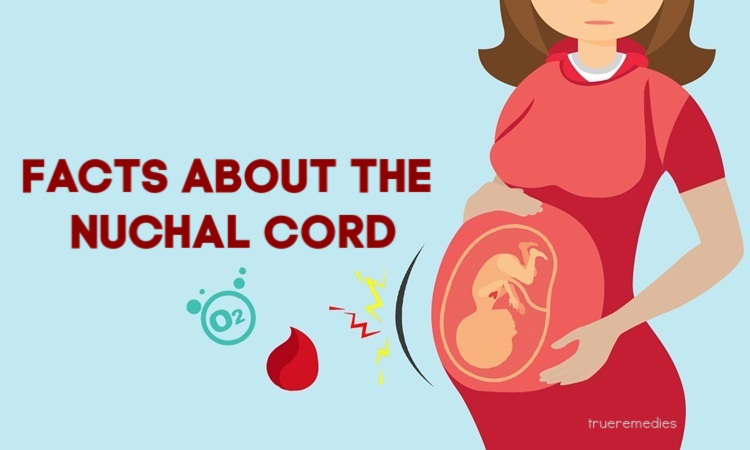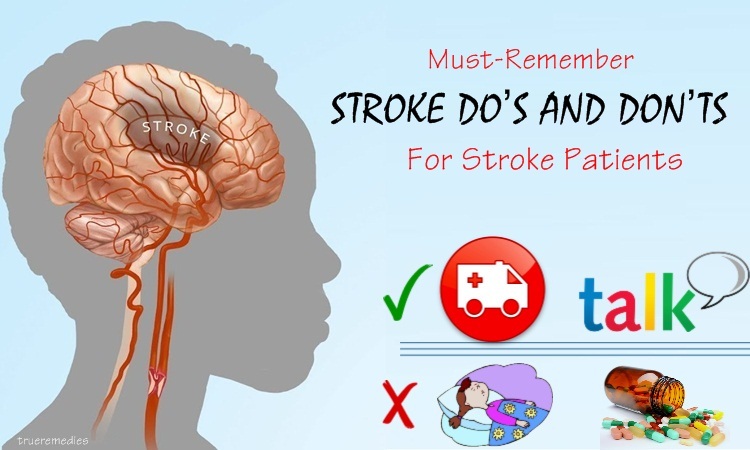Updated: 11/20/2019
Table of Contents
Diabetes is a chronic metabolic disease where your body fails to properly absorb and transform sugars/ starches from your blood into other energy forms (build new tissues, glycogen, fat, etc.) Many of the foods you consume are normally turned into glucose during digestion. Then, the bloodstream carries glucose through your body. After that, the hormone insulin should be released from the pancreas to convert glucose into quick energy. The body either doesn’t make enough insulin or can’t use insulin correctly in diabetic people. This results in excessive glucose buildup in the bloodstream. Thus, people with diabetes should eat smart to keep glucose levels in a safe range. When you have diabetes, it is easier to curb levels of blood sugar if you follow a set of diet do’s and don’ts for diabetics. Let’s check out on TrueRemedies!
- How to reduce triglyceride levels in blood
- Home remedies for high cholesterol levels
- How to increase good cholesterol (HDL) levels
Top 18 Diet Do’s And Don’ts For Diabetics: Foods To Eat And Foods To Avoid
I. Foods To Add For Diabetic Patients
Making beneficial food choices can help manage blood sugar levels in people with diabetes. According to the American Diabetes Association[1], for diabetes patients, the key to a healthy and beneficial diet is:
- Eat lean protein
- Include fruits and vegetables
- Avoid trans fats
- Opt for foods with less added sugar
Below is a list of several vegetables, fruits, and foods which contain less sugar, or a low glycemic index/ load.
1. Green Leafy Vegetables
Green leafy vegetables are extremely nutritious because they are storehouses of nutrients, minerals, and vitamins. Along with that, they have minimal effect on blood sugar levels. Several researchers say that consuming green leafy vegetables is beneficial for those with diabetes since they possess starch-digesting enzymes and high antioxidant content[2]. Leafy greens, including kale and spinach are a rich source of calcium, fiber, protein, vitamin A, and potassium. They are also enriched with vitamin C. According to a study, increasing vitamin C intake may help lower inflammatory markers along with fasting blood sugar levels for individuals with high blood pressure or type 2 diabetes[3]. Kale juice may help improve blood pressure in those with subclinical hypertension and regulate blood sugar levels[4]. Green leafy vegetables include bok choy, broccoli, cabbage, collard greens, spinach, and kale. People with diabetes can add green leafy vegetables to their diet in side dishes, salads, soups, and dinners.
2. Fatty Fish
Fatty fish consists of important omega-3 fatty acids called DHA (docosahexaenoic acid) and EPA (eicosapentaenoic acid), which have major advantages for heart health, while also having virtually 0 sugars. People require a certain quantity of healthful fats to enhance brain and heart health and keep their bodies functioning. Taking enough of these fats on a daily basis is useful for diabetic patients, who have an increased chance of developing heart disease and stroke[5]. According to the American Diabetes Foundation, a diet rich in monounsaturated and polyunsaturated fats may improve blood lipids and blood sugar control in people with diabetes[6]. Fish also contains high-quality protein, which may help you feel full and increases your metabolic rate[7]. Fish that are a powerful source of both monounsaturated and polyunsaturated fats include salmon, mackerel, herring, sardines, trout, and albacore tuna. People can try grilled, roasted, or baked fish instead of eating fried fish, which has saturated and trans fats.
TrueRemedies Partner Solutions

Need a Help from the Leading Expert Online, Available 24/7?
They’re all here and ready to answer your questions online or by phone. Keep asking questions until you get the answer you need.
3. Whole Grains
Whole grains have more nutrients and a high level of fiber than refined white grains. Consuming a diet rich in fiber is important for diabetic patients since fiber helps slow down the process of digestion[8] [9]. A slower nutrient absorption helps to maintain a stable blood sugar level. Whole grains and whole wheat are lower on the GI (glycemic index) scale than rice and white bread. Add whole grains such as brown rice, whole-grain pasta, whole-grain bread, bulgur, rye, quinoa, millet, buckwheat, and quinoa to the diet. Grains are starches which get converted to sugar so always go for the whole high fiber grains. Remember high fiber intake helps counter blood sugar spikes.
4. Citrus Fruits
Citrus fruits such as lemons, grapefruits, and oranges contain anti-diabetic effects. According to a few researchers, two bioflavonoid antioxidants, called naringin and hesperidin, are responsible for the antidiabetic impacts of oranges[10]. Eating citrus fruits is an excellent way to get minerals and vitamins from fruits without carbs. Besides, citrus fruits are enriched with potassium, folate, and vitamin C. Caution don’t pig out on only fruit, as it can raise blood sugar levels.
5. Berries
Berries can help to prevent oxidative stress thanks to their antioxidants. Oxidative stress is associated with many health conditions such as a few cancers and cardiovascular disease[11] [12]. Studies have found chronic oxidative stress levels in individuals with diabetes[13]. Strawberries, raspberries, blackberries, and blueberries are a powerhouse of fiber and antioxidants. They further have important other minerals and vitamins, including potassium, magnesium, vitamin C, and vitamin K. Particularly, strawberries are full of antioxidants known as anthocyanins. Anthocyanins have been indicated to lower insulin and cholesterol levels after a meal. Besides, they may help improve heart disease and blood sugar, risk factors for type 2 diabetes[14] [15] [16]. People can eat a handful of fresh berries as a snack or add them to their breakfast.
6. Beans
An excellent food choice for people with diabetes is beans. The American Diabetes Association advises those with diabetes to add no-sodium canned beans or dried beans to some meals each week[17]. They are high in protein and can satisfy the appetite and help people lower their carbohydrate intake. Eating beans can also aid in weight loss and can help regulate blood pressure and cholesterol of a person. There is a variety of beans for you to choose from, including adzuki beans, navy beans, black beans, pinto beans, and kidney beans. These beans are also filled with magnesium, potassium, and iron.
7. Nuts
All types of nuts are low in digestible carbohydrates and are rich in fiber. According to research, regular consumption may decrease inflammation and reduce blood sugar, LDL and HbA1c levels[18] [19] [20] [21]. People with type 2 diabetes have elevated insulin levels, which are associated with obesity. Chronically high insulin levels can increase the risk of serious diseases, such as Alzheimer's disease and cancer. Regular consumption of walnuts may help reduce insulin levels[22]. Many nuts like flax seeds are also high in healthy (anti-inflammatory) omega-3 fats.
8. Eggs
Eggs may help keep you full for hours[23] [24] [25]. Regular consumption of eggs may also lower the risk of heart disease in several ways. Plus, eggs may reduce your “bad” LDL cholesterol, increase your “good” LDL cholesterol, and improve insulin sensitivity[26] [27] [28] [29]. According to a study, individuals with type 2 diabetes who ate two eggs daily had an improvement in blood sugar and cholesterol levels[30].
9. Turmeric
Turmeric can provide you with powerful health benefits. It contains an active ingredient called curcumin, which may decrease blood sugar levels and inflammation while lowering the risk of heart disease[31] [32] [33]. Curcumin also benefits kidney health in diabetics. Diabetes is one of the main reasons for kidney disease[34] [35]. Unluckily, curcumin is not absorbed well on its own. Thus, you need to consume turmeric with piperine housed in black pepper to stimulate absorption by as much as 2,000 %[36], or talk to a naturopathic doctor about curcumin supplements.
10. Flaxseeds
Flaxseeds are rich in lignans, which may help improve blood sugar control and reduce heart disease risk[37] [38]. A study showed that those with type 2 diabetes who consumed flaxseed lignans for three months had a remarkable improvement in hemoglobin A1c[37]. Moreover, flaxseeds improve gut health, feelings of fullness, and insulin sensitivity, as they abundant in viscous fiber. Your body cannot absorb whole flaxseeds, so grind them yourself before consuming (with mortar and pestle, or a coffee grinder), or purchase pre-ground seeds and keep them in the fridge.
11. Extra Virgin Olive Oil
Olive oil comes with oleic acid, which has been indicated to improve HDL and triglycerides. Besides, it may raise the fullness hormone GLP-1[39] [40]. Olive oil is also beneficial for heart health and for reducing heart disease risk[41]. Apart from that, the oil possesses antioxidants called polyphenols. They decrease inflammation, stop the damage from oxidized LDL, and lower blood pressure[42] [43] [44].
II. Foods To Limit For People With Diabetes
Eating the wrong foods may increase your insulin and blood sugar levels and stimulate inflammation that may raise your risk of disease. People with prediabetes or diabetes should avoid the following foods.
1. Trans Fats
Industrial trans fats are created by including hydrogen in unsaturated fatty acids to make them more stable. You can trans fats in frozen dinners, creamers, spreads, peanut butter, and margarine. Besides, food manufacturers often add trans fats to muffins, crackers, and other baked goods to extend shelf life. Though trans fats do not directly increase blood sugar levels, they have been related to increased inflammation, belly fat and insulin resistance, and impaired arterial function and lower good HDL cholesterol levels[45].
2. Sugar-Sweetened Beverages
Sugary beverages are high in carbohydrates[46]. A 12-ounce can of lemonade and sweetened iced tea each have 36 grams of carbohydrates, exclusively from sugar[47] [48]. Along with that, they are packed with fructose that is associated with insulin resistance and diabetes. Drinking sugar-sweetened beverages may raise the risk of developing diabetes-related issues like fatty liver[49] [50] [51]. In addition to this, the high levels of fructose in sugary drinks may cause metabolic changes promoting belly fat and harmful triglyceride and cholesterol levels. To help and prevent disease risk and manage blood sugar levels, consume water, unsweetened iced tea or club soda instead of consuming sugary beverages. Bottom line, drinking any drinks with sugar in them will worsen diabetes and increase all diabetes risks (loss of feet, blindness, kidney failure, heart disease related death, etc.)
3. Fruit-Flavored Yogurt
Flavored yogurts are basically made from low-fat or non-fat milk and loaded with sugar and carbs. A one-cup serving of fruit-flavored yogurt can have 47 grams of sugar[52]. High-sugar yogurts can spike your insulin and blood sugar. Instead of choosing them, you can go for whole-milk, plain yogurt that has no sugar and may be useful for your weight control, appetite, and gut health[53].
4. French Fries
Potatoes themselves contain a high content of carbs[54]. When potatoes have been peeled and fried in vegetable oil, they may spike your blood sugar. According to some studies, deep-frying foods may produce high quantities of toxic compounds such as aldehyde and AGEs, which may increase the risk of disease and promote inflammation[55]. Moreover, eating French fries, together with other fried foods are related to an increase in heart disease and cancer. Instead of fried potatoes, you can eat a small number of sweet potatoes.
5. Fruit Juice
Like sodas and other sugary drinks, fruit juice may have a negative effect on blood sugar. Fruit juice can contain higher sugar and carbohydrates than soda. Eight ounces of grape juice contains 32 grams of sugar. An equivalent serving of soda and unsweetened apple juice provides 24 grams of sugar each. Fruit juice, like sugar-sweetened beverages, is full of fructose, which drives insulin resistance, heart disease, and obesity. Eat whole fruits only, as the fiber in whole fruits helps prevent blood sugar spikes.
6. Flavored Coffee Drinks
Coffee has been associated with several health advantages, including a reduced risk of developing diabetes[56]. However, flavored coffee drinks are packed with carbohydrates. Even “light” versions have enough carbs to increase your blood sugar levels significantly. For example, a 16-ounce caramel frappuccino from Starbucks provides 67 grams of carbs. Choose plain espresso or coffee with one tablespoon of half-and-half or heavy cream to prevent weight gain and control your blood sugar.
7. Sweetened Breakfast Cereals
Most cereals have far more carbohydrates than many people realize and are highly processed. In addition to this, they contain very little protein, which can help you satisfied and feel full while keeping your blood sugar levels stable throughout the day[57]. Even healthy breakfast cereals are not good options for people with diabetes. To keep hunger and blood sugar under control, neglect the cereal and opt for a protein-based low-carb breakfast, or sugar free oatmeal/porridge instead.
III. Foods That Are A Strict “NO”
The following foods are best avoided because they have no or little nutritional values and can also cause harm to health. These can increase your blood sugar levels almost quickly.
- Deep fried foods such as samosa, wagers, farsan, etc.
- Refined sugar, honey, jam, jaggery, and jellies
- Nuts such as almonds, dried cashew nuts etc., since they are enriched with saturated fat, which gets converted to cholesterol in the body
- High sugar and high fat salad dressings using mayonnaise, cream, etc.
- Chocolates, biscuits made with full fat ice-creams, refined flour, puddings and pies, high cream and sugar content, any sweet snacks are a no-no.
- Sweetmeats such as barfi, peda, and all other mithais
- Aerated drinks, canned or preserved fruits and fruit squashes that are high in preservatives and sugar
Diabetic patients need to take special care of their diet. The quantity and quality of the food you consume need to be controlled carefully because minor changes in your diet can cause either high blood sugar levels (hyperglycemia) or low blood sugar levels (hypoglycemia). Thus, try following the above diet do’s and don’ts for diabetics to help keep blood sugar levels under control and stay away from any further complications. Always talk to your doctor about managing diet and diabetes. Visit our main News & Facts page to read more about other informative articles. Take care!
Read more: 11 Home Remedies For Low Blood Pressure Symptoms. This article was medically reviewed/fact checked by Dr. Myle Akshay Kiran.









